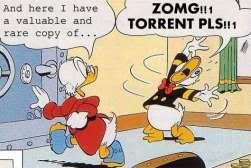Damaramu:According to this comment made on the Slashdot website, it sounds like the RIAA doesn't have a leg to stand on:
Quote:
Contrary to what the RIAA wants you to believe, it appears that making a copy of an audio recording may be perfectly legal in the US, even if you don't own the original recording, as long as it is for noncommercial purposes. The reason for this is the Audio Home Recording Act (AHRA).
Since 1992, the U.S. Government has collected a tax on all digital audio recorders and blank digital audio media manufactured in or imported into the US, and gives the money directly to the RIAA companies, which is distributed as royalties to recording artists, copyright owners, music publishers, and music writers:
http://www4.law.cornell.edu/uscode/17/ch10.html
[cornell.edu]
In exchange for those royalties, a special exemption to the copyright law was made for the specific case of audio recordings, and as a result *ALL* noncommercial copying of musical recordings by consumers is now legal in the US, regardless of media:
http://www4.law.cornell.edu/uscode/17/1008.html
[cornell.edu]
"No action may be brought under this title alleging infringement of copyright based on the manufacture, importation, or distribution of a digital audio recording device, a digital audio recording medium, an analog recording device, or an analog recording medium, or based on the noncommercial use by a consumer of such a device or medium for making digital musical recordings or analog musical recordings."
The intent of Congress was clear when this law was passed
http://www.cni.org/Hforums/cni-copyrigh ... /0018.html
[cni.org]
From House Report No. 102-873(I), September 17, 1992:
"In the case of home taping, the [Section 1008] exemption protects all noncommercial copying by consumers of digital and analog musical recordings."
From House Report No. 102-780(I), August 4, 1992:
"In short, the reported legislation [Section 1008] would clearly establish that consumers cannot be sued for making analog or digital audio copies for private noncommercial use."
Therefore, when you copy an MP3 the royalties have already been paid for with tax dollars in accordance with the law. If you are a musician whose recordings are publicly distributed, then you are entitled to your share of these royalties by filing a claim under Section 1006
http://www4.law.cornell.edu/uscode/17/1006.html
[cornell.edu]
Napster tried to use this law to defend their case, and the court ruled this law did not apply to them because they are a commercial company. But as a consumer it seems to me you are perfectly within your rights when you make a copy for noncommercial private use.


